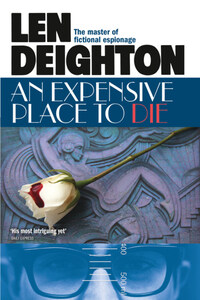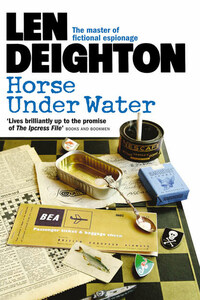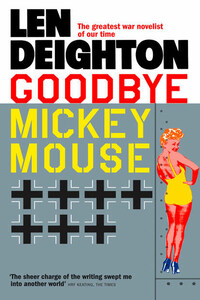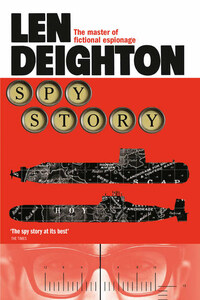Published by HarperCollinsPublishers Ltd 1 London Bridge Street London SE1 9GF
www.harpercollins.co.uk
First published in Great Britain by
Jonathan Cape Ltd in 1967
Copyright © Len Deighton 1967
Introduction copyright © Pluriform Publishing Company BV 2012
Cover designer’s note © Arnold Schwartzman 2012
The poem ‘May’ quoted here is from Twentieth Century Chinese Poetry,translated by Kai-yu Hsu (copyright © Kai-yu Hsu 1963) and reprinted by permission of Doubleday & Co. Inc., New York
Len Deighton asserts the moral right to be identified as the author of this work
A catalogue record for this book is available from the British Library
This novel is entirely a work of fiction. The names, characters and incidents portrayed in it are the work of the author’s imagination. Any resemblance to actual persons, living or dead, events or localities is entirely coincidental.
All rights reserved under International Copyright Conventions. By payment of the required fees, you have been granted the non-exclusive, non-transferable right to access and read the text of this e-book on-screen. No part of this text may be reproduced, transmitted, down-loaded, decompiled, reverse engineered, or stored in or introduced into any information storage and retrieval system, in any form or by any means, whether electronic or mechanical, now known or hereinafter invented, without the express written permission of HarperCollins e-books.
HarperCollinsPublishers has made every reasonable effort to ensure that any picture content and written content in this ebook has been included or removed in accordance with the contractual and technological constraints in operation at the time of publication.
Source ISBN: 9780007448349
Ebook Edition © June 2012 ISBN: 9780007458387 Version: 2017-05-23
Do not disturb the President of the Republic
except in the case of world war.
Instructions for night duty officers
at the Élysée Palace
You should never beat a woman,
not even with a flower.
The Prophet Mohammed
Dying in Paris is a terribly expensive
business for a foreigner.
Oscar Wilde
France beckons to every lonely misfit, and most novelists answer to that description at some time or another. Many authors have responded to France’s call with enthusiasm; notably during those years between the two world wars when the exchange rates favoured those with US dollars, and Prohibition at home made the noble vintages of France irresistible. But most of those writers were prudent. Writing primarily for English-speaking readers they wrote stories about English-speaking people. Most of those stories were vaguely autobiographical ones about the wealthy English and American visitors with whom the writers fraternized. France provided the mountains and the Mediterranean but the French people in the stories were mostly waiters.
Many of the resulting books were dazzling; some became classics but many of the stories could have taken place in Gloucestershire or Long Island. This was a practical restraint, but writing about France without depicting French people (however inaccurate or untypical the characterizations might be) is like eating a chocolate bar without first removing the wrapper. I am not prudent. I wanted to tell my story with French men and women playing major roles.
It was this need to bring French people into An Expensive Place to Die that led to my including some chapters in the third person. This gave me a chance to show their thoughts and motivation and an opportunity to have action beyond that of the first person. This was not a planned device, it came naturally to the telling of the story and no one criticized it.
No doubt every writer has their own method of writing and this is something that writers enjoy talking about. Most important is whether to write after making a careful plan or to simply invent each new chapter as it comes. Many writers have told me that they don’t know what the end of their books will be when they are writing the first page. The argument against this is the uncertainty that comes of consigning the plot to the vagaries of the writer’s day-to-day temperament. My experience is that there comes a stage in the planning when it is best to start writing and leave some room to develop your characters. Whatever method is chosen, some element of your story is likely to assume an importance beyond your plan. In XPD a character named Charles Stein became that sort of element. He wrestled to take control of my story and nearly did so. Looking back on it, the book was much enhanced by him. For











